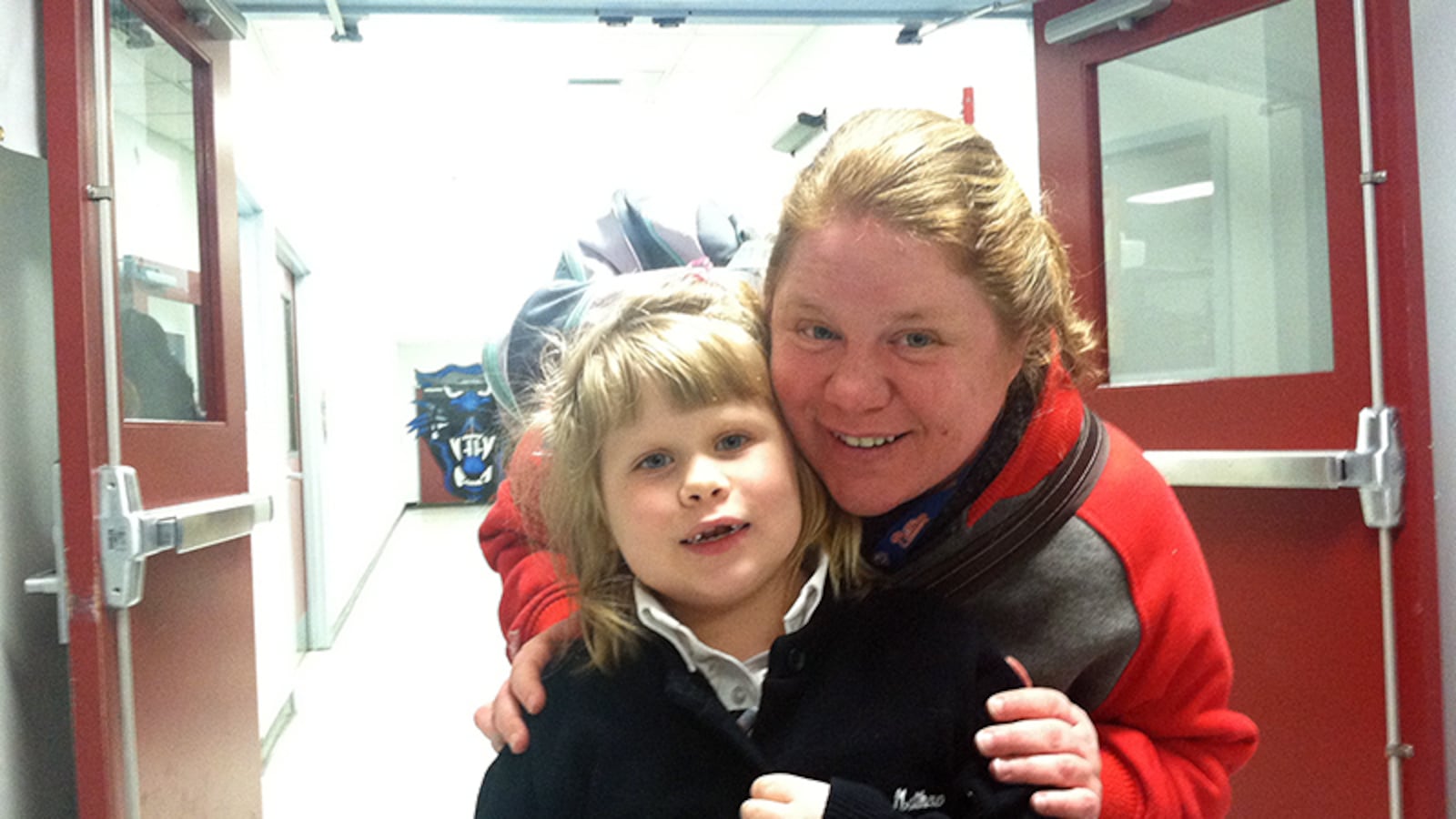This article was originally published in The Notebook. In August 2020, The Notebook became Chalkbeat Philadelphia.
Chrissy Poper has been trying to get her 8-year old daughter into the popular MaST Community Charter School in Northeast Philadelphia for the last three years.
But with parent demand far outpacing the number of available seats at the school, Poper has been left to play some very long odds.
"I put applications in for her in kindergarten, first, and second grade," Poper said.
"She just hasn’t hit the lottery yet."
Listen to Benjamin Herold’s WHYY radio report.
This year, Poper was among the hundreds of families to show up in person for MaST’s enrollment lottery, held Tuesday afternoon in the school auditorium. The chances of winning were slimmer than ever. All told, said MaST CEO John Swoyer, the school received 5,782 applications for just 140 openings.
Poper was disappointed to learn that Abigail wouldn’t even get a shot; 498 families applied for third grade at MaST, where no open seats were available.
"Very bummed," said Poper, on her way out the door.
Like many city charter schools hoping to serve more of the families clamoring at their classroom doors, MaST wants to grow. The school is one of 20 Philadelphia charters that have filed an application to expand with the School District as part of this year’s charter renewal and modification process.
But although the District says it wants to add "high-quality seats," regardless of whether they’re in traditional public schools or in taxpayer-funded, independently managed charters, money will almost certainly be an obstacle. MaST’s expansion request alone, for more than 2,000 new students at another location, would cost the District as much as $17 million per year. That is a huge sum for a District that just decided to close 23 of its own schools and is still facing a billion-dollar budget shortfall over the next several years.
"It is important to underline our commitment to high-quality public education options for Philadelphia families," said District spokesman Fernando Gallard. "But we have to do it in a way in which we can afford it."
MaST highlights the District’s quandary.
A quick tour of the school shows why it’s so popular: The shining facility boasts a state-of-the-art media center, computer labs everywhere you turn, and its own high-definition television studio.
MaST — which stands for Mathematics, Science, and Technology — also has impressive test scores, with 80 to 90 percent of students scoring proficient or above on state tests in both reading and math. In addition, the school has one of the highest graduation rates in Philadelphia.
And most important to parents such as Laura O’Toole, MaST goes from kindergarten through 12th grade, so getting a seat means not having to worry about school again until it comes time for college.
"My youngest is a firework," said O’Toole on her way into the lottery. "She’s really advanced. I just feel that a charter school would offer more education."
But like the other hopeful parents on hand, O’Toole quickly found out how steep the odds against her were. Of the 104 available kindergarten seats, 62 were taken by siblings of current MaST students, who are given preference during the admissions process in accordance with state law.
That left more than 1,200 families competing for just 42 open seats, according to Swoyer, the school’s CEO.
After the lucky names were read, a stream of dejected parents filed out the door.
O’Toole was one of many who signed petitions aimed at pressuring the School Reform Commission and Mayor Nutter to support MaST’s expansion request.
"You can see by the number of people here that the need is there … so I think it would absolutely benefit the kids to expand at a different site," she said.
Swoyer’s hope is to open a 2,450-seat second campus, possibly on Roosevelt Boulevard. He’d like the school to focus on robotics and arts. Swoyer said he understands the District’s financial position, but he argued that it’s difficult to overstate the value of keeping committed families from fleeing the city in search of better schools.
"If you have a great model that works, I think you should definitely look to replicate it," he said.
District spokesman Gallard would not say how many total seats have been requested by charter schools. Gallard did say that 14 of the 16 charters up for renewal are seeking to expand. Six other charters have requested modifications to their existing charters.
"The state’s current system of funding charters entails a net cost to the District," Gallard said. "At a time when we are in a very deep financial crisis, we will be looking very hard at what we can do this upcoming year with regard to expansion of quality seats."
Last year, the SRC approved a total of 5,416 new charter seats at an estimated cost of $139 million over five years.
Votes on this year’s renewals, expansions, and modifications could begin as soon as April.
This story was reported through a partnership in education coverage between WHYY/NewsWorks and the Public School Notebook.


